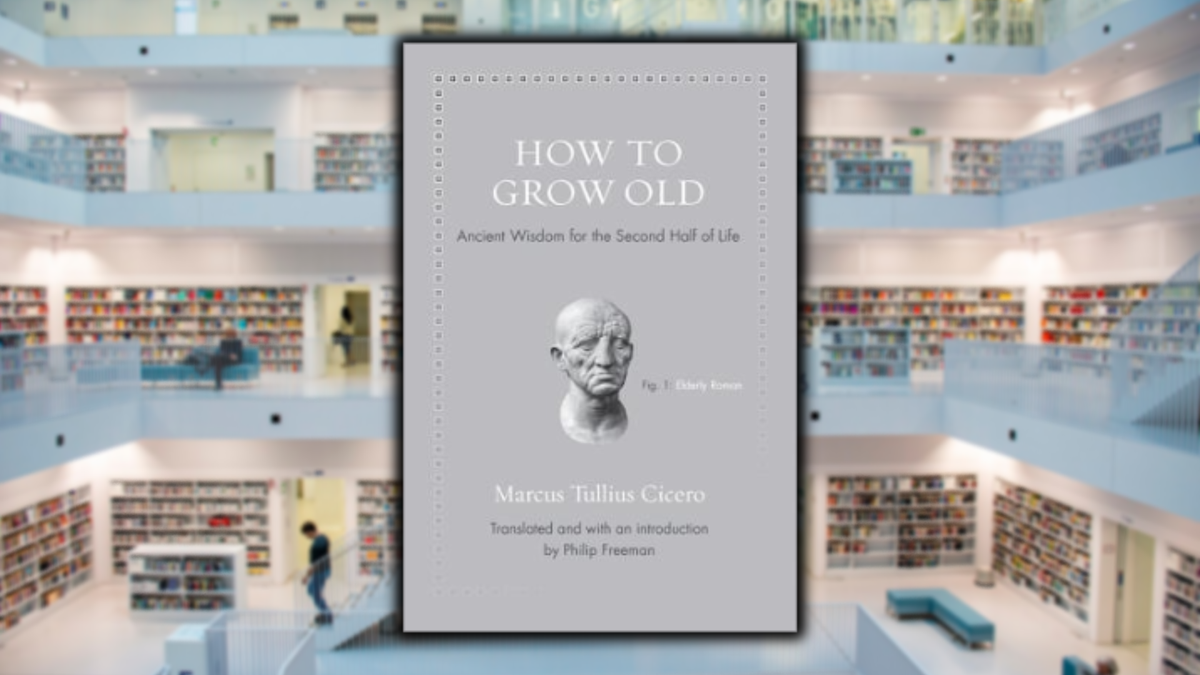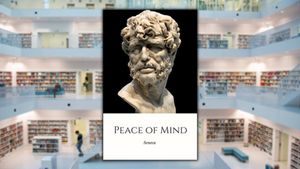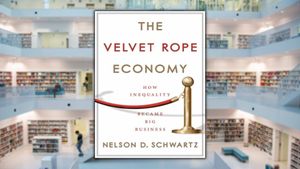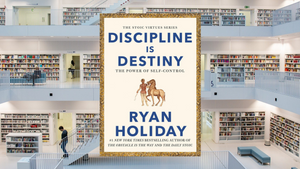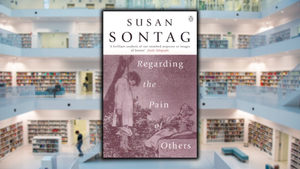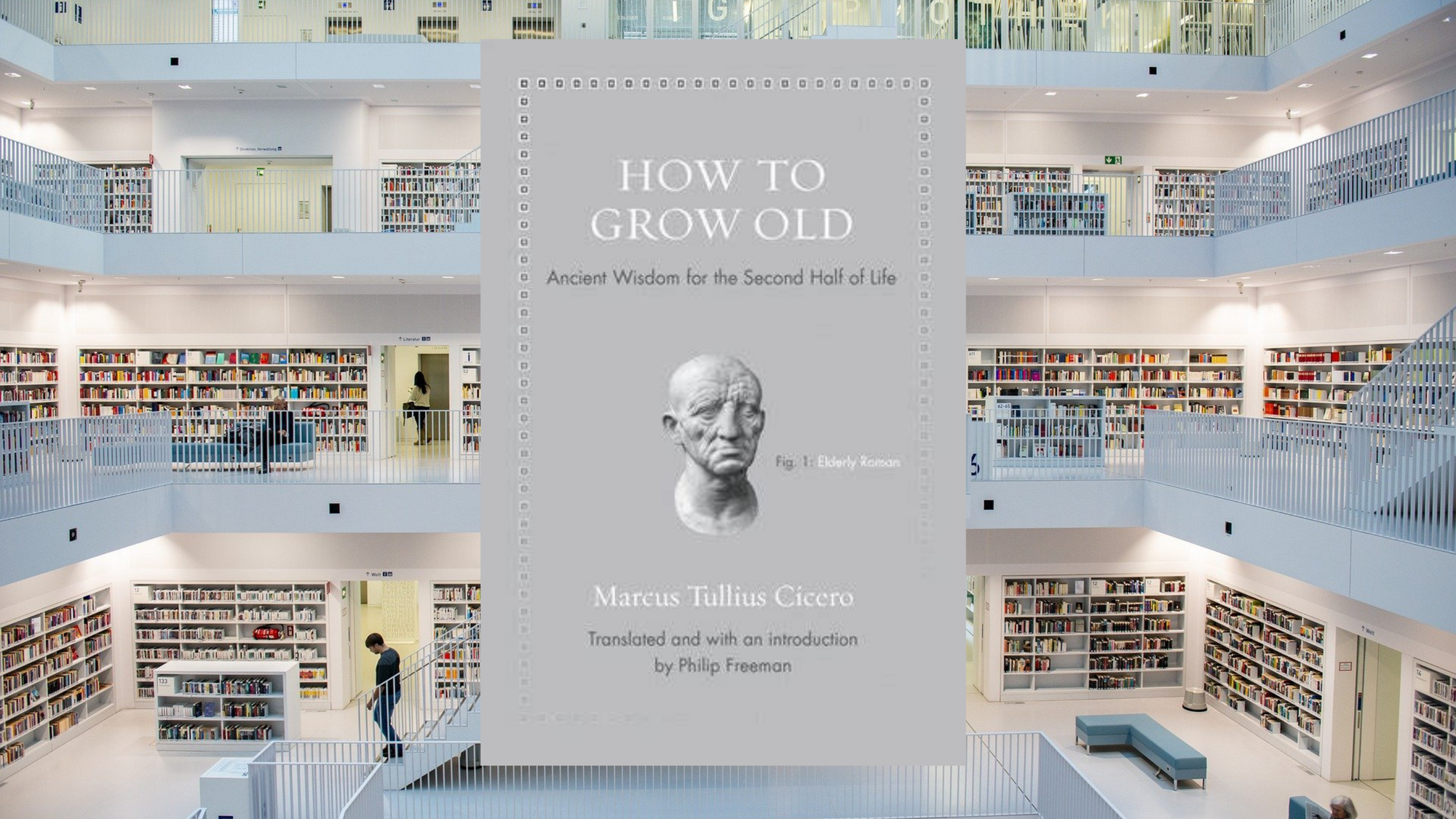
Summary:
For more than 2,000 years, readers have loved and kept coming back to Cicero's dialogue concerning the wonders and benefits of aging (yea, you read that right) - people like Benjamin Franklin, Thomas Jefferson, and Saint Augustine, to name a few. Michel de Montaigne even said that the book "gives one an appetite for growing old." I'm not exactly in a rush to get into my sixties, but How to Grow Old, originally titled On Old Age, has absolutely stood the test of time.
Cicero was a Roman politician, writer, and orator who lived during the chaotic years after the assassination of Julius Caesar and the power vacuum that ensued. He published the book in 44 B.C., right before being executed by Mark Antony (Cleopatra's BF) and after a long and very high-profile career as one of the leading figures of the Roman Empire.
In the Philip Freeman translation, which is the one this Breakdown is based on, there's also the original Latin text displayed on the facing page, which you can follow along with if you're so inclined! I mostly stuck with the English version, but having the Latin there inspired one of my favorite 2-star reviews of the book I saw on Amazon which complained that the book was terrible because "it's short and half the pages are in Latin!"
How to Grow Old is heavily influenced by the philosophy of Stoicism, and it's staged as a dialogue between Cato the Elder, a Roman senator who lived a hundred years before Cicero, and two younger friends. Cato sees aging as a natural and inevitable aspect of the cosmos, the "final act" of the mortal play, and thus nothing to be feared.
As discussed at the beginning of the "Key Ideas" section below, there are four major "objections" people have to the fact of aging (as though it were optional!), and in Cicero's dialogue, Cato the Elder dispatches each one with reasoned arguments derived from experience.
Those objections refer to: (1) the physical deterioration of the body, (2) the "closing off" of one's life and the reduced opportunities for self-expression and meaningful activity, (3) the deprivation of certain pleasures that can no longer be enjoyed, and finally, (4) the fear of death itself, which looms larger in most people's minds as they come to believe that they are nearing the end.
While it's certainly possible to come up with "objections to the objections to the objections," you might be surprised at how persuasive Cicero actually is! I was just 30 when I first read How to Grow Old - not even at the peak of my life yet - but already I was thinking that (some parts of) getting old would actually be really cool!
Cicero makes the case that although we give up certain things when we get older, we also gain other things that are just as valuable - some might even say more valuable.
We lose at least some of our physical vitality and our seemingly limitless potential, but we're compensated with greater peace, tranquillity, and more time for pursuing intellectual and creative pursuits that we may never have had time for in our period of "getting and spending and striving" when we were younger.
He also explains that death becomes less terrifying in proportion to how prepared we are to meet it. Just like anything we're not prepared for can be terrifying, failing to think properly about death while we're young prevents us from critically evaluating it and preparing for it when we're older.
Cicero conceives of death as something like an "achievement," in that old age is something that most people say they want to get to! In a sense, once you get to be old, you've made it!
You've arrived at the point at which you were aiming all along, and so it makes no sense to dread coming to the end of your "voyage." If you've lived properly, thoroughly, and well, you will have "consumed all your fuel" in living, given everything you have in life, and can now welcome a peaceful, restful end after what has been a memorable, joyous journey.
Readers of Alan Watts will notice a thematic connection here as in this quote from the "Sage of Sausalito": "You are something that the universe is 'doing,' in the same way that a wave is something that the whole ocean is doing."
You were never separate in the first place; you have always been a necessary and instrumental part of Nature Itself, and death is a returning home to that which you Are. Because of this, death is nothing to be feared, and you can get back to the true business of living.
In all this, Cicero's main argument is that although aging is inevitable for those fortunate enough to avoid an early death, the fear of death is not inevitable and that there are good reasons why it should be abandoned.
Freedom from fear is one of Cicero's greatest gifts to posterity, and probably why this book has been so beloved for generations. Because the fear of death isn't just limited to those who have attained a certain age - it can make one's entire life a torment if it isn't faced head-on. Remove the fear of death, and you let in the love of life. As Cicero said himself:
“Wretched indeed is the man who in the course of a long life has not learned that death is nothing to be feared.”

Key Ideas:
#1: There are four major "objections" people have to aging (as though it were optional!), and in Cicero's dialogue, Cato the Elder dispatches each one with reasoned arguments derived from experience.
Those objections refer to: (1) the physical deterioration of the body, (2) the "closing off" of one's life and the reduced opportunities for self-expression and meaningful activity, (3) the deprivation of certain pleasures that can no longer be enjoyed, and finally, (4) the fear of death itself, which looms larger in most people's minds as they come to believe that they are nearing the end.
Cicero - through the vehicle of Cato - has rebuttals to each of these objections, and he lays them out individually as the dialogue progresses. He gives examples of people he has known or heard of that have surmounted all these difficulties and embraced old age with dignity and grace.
#2: “A good old age begins in youth. Cicero says the qualities that make the later years of our lives productive and happy should be cultivated from the beginning. Moderation, wisdom, clear thinking, enjoying all that life has to offer – these are habits we should learn while we are young since they will sustain us as we grow older. Miserable young people do not become happier as they grow older.”
The quote above comes from Philip Freeman's introduction, and it has to do with preparing to meet old age with equanimity, but also with avoiding the mistake of always "preparing to live." By this Cicero means overlooking what we have been blessed with today, always looking ahead to what we stand to lose, and never actually getting down to the real business of living.
What Cicero is saying can be learned and applied at any age, but it's much better if you internalize these ideas while you're younger. Ideally, you would be able to appreciate moderation, wisdom, clear thinking, and everything else that's great in life before you ever come close to entering old age.
It can be exceptionally difficult to change one's habits of life, and if you wait to do it until you're older, you may find that it's already too late. The chains of habit are too light to be felt, until they're too heavy to be broken.
#3: “Those who lack within themselves the means for living a blessed and happy life will find any age painful. But for those who seek good things within themselves, nothing imposed on them by nature will seem troublesome.”
If you "keep all your goods with you," by which is meant that you rely only on your own strength and resilience to carry you through life and not on anything external, then nothing can ever be taken away from you. Because you carry everything you need inside yourself!
This attaches to the idea of "preferred indifferents" in Stoic philosophy, which refers to a category of things that you'd "prefer" to have happen or to possess, but that you're totally fine with not having. You would prefer to stay young and physically healthy forever, but if and when you do grow old, you will surrender those things without having it affect your happiness. Physical health would be a "preferred indifferent."
It doesn't need to be said that this is extremely hard to do for most people. But what Cicero is getting across here is that if you're constantly looking outside yourself for the things that will make you happy, you'll never be satisfied - no matter what your age happens to be.
#4: “I follow nature as the best guide and obey her like a god. Since she has carefully planned the other parts of the drama of life, it’s unlikely that she would be a bad playwright and neglect the final act. And this last act must take place, as surely as the fruit of trees and the earth must someday wither and fall. But a wise person knows this and accepts it with grace. Fighting against nature is as pointless as the battles of the giants against the gods.”
#5: As we get older, we lose some things and gain others. We sacrifice the wild parties (some of us!) and the late nights spent defying law and order; we're no longer able to compete at the height of our physical abilities in sports or athletics; we may "still have it, but forget where I put it."
But what we gain is wisdom, peace, quiet, and tranquillity. Cicero freely admits that the things we enjoyed while young were good, and he's pleased that young people have the opportunity to pursue them. If you are living properly, he says, you squeeze every bit of life from every day, week, month, and year of your one and only life.
It's just that it's inevitable, according to natural scheme of the universe, that eventually we will no longer possess those things we were once blessed with in youth. However, the universe - nature - compensates us with gifts of equal value. Things like quiet conversation, deep friendships (you can never make "new" old friends), and the accumulated wisdom of your years.
These are things that young people never have access to (no one under 30 has ever had a friendship that's lasted for half a century!), and by definition will not be able to acquire until they're older. These benefits are the exclusive domain of the aged, and it's these gifts with which Cicero was able to convince people like Montaigne that getting older is actually something to look forward to.
#6: “Nothing troubles you if you don’t desire it.”
The Second Noble Truth of the Buddha is that suffering is caused by desire. We suffer because we want shit, and Cicero knew as well as anyone that desire is the very opposite of peace.
So, as much as is possible, Cicero advises us to let go of our desires and in doing so release our suffering and our trouble as well. If you don't have any desires - or at least no strong, unrealistic desires (you're allowed to be hungry and want food), then you won't have any troubles.
This is not "sour grapes," either. It's not "settling for less," or pretending - lying - to yourself that you don't really want what you, in fact, actually do want! It's higher-concept than that.
It's a special level of Stoic wisdom to reach the state of wanting what you already have. This appears in the Meditations as well, where Marcus Aurelius urges us to look at what we have and think to ourselves how much more we would want it if we didn't already have it.
If you've eaten today and aren't going to bed hungry tonight, just try to imagine how much you would want food if you hadn't eaten all day - and had no ability to satiate your desire for food - and were forced to go to bed hungry. In this way, we can "want what we have." We can also do this when it comes to aging, wanting the benefits that come exclusively with age, like wisdom and deep, long-lasting relationships.
#7: “What youth longs for, old age has attained. A young person hopes to have a long life, but an old man has already had one.”
People fear getting older, but at the same time, they want to have a long life! It's kind of ridiculous when you think about it that way. Old age is the point at which you were trying to arrive, but you're not looking forward to it actually happening!
Of course, this absolutely makes sense - people don't necessarily fear the fact of having been alive for a great number of years, but rather, they fear the changes that come with aging itself.
This seems perfectly reasonable, until Cicero refutes every claim: old age widens the scope for intellectually-stimulating activity, and it comes with a lot of peace as well; we can keep ourselves healthy enough if we look after ourselves, but aging - and losing at least some physical vitality - is a fact of nature, and he believed that Nature didn't make mistakes; older people fear death, but being young is no guarantee that you won't also face death. Getting to be old means that you made it!
#8: “If I’m wrong in my belief that souls are immortal, then gladly do I err, for this belief, which I hope to maintain as long as I live, makes me happy. If, as certain small-minded philosophers believe, I shall feel nothing at all after death, then at least I don’t have to worry that they will be there to mock me after they die!”
#9: “Therefore, when the young die I am reminded of a strong flame extinguished by a torrent; but when old men die it is as if a fire had gone out without the use of force and of its own accord, after the fuel had been consumed; and, just as apples when they are green are with difficulty plucked from the tree, but when ripe and mellow fall of themselves, so, with the young, death comes as a result of force, while with the old it is the result of ripeness.
To me, indeed, the thought of this “ripeness” for death is so pleasant, that the nearer I approach death the more I feel like one who is in sight of land at last and is about to anchor in his home port after a long voyage.”
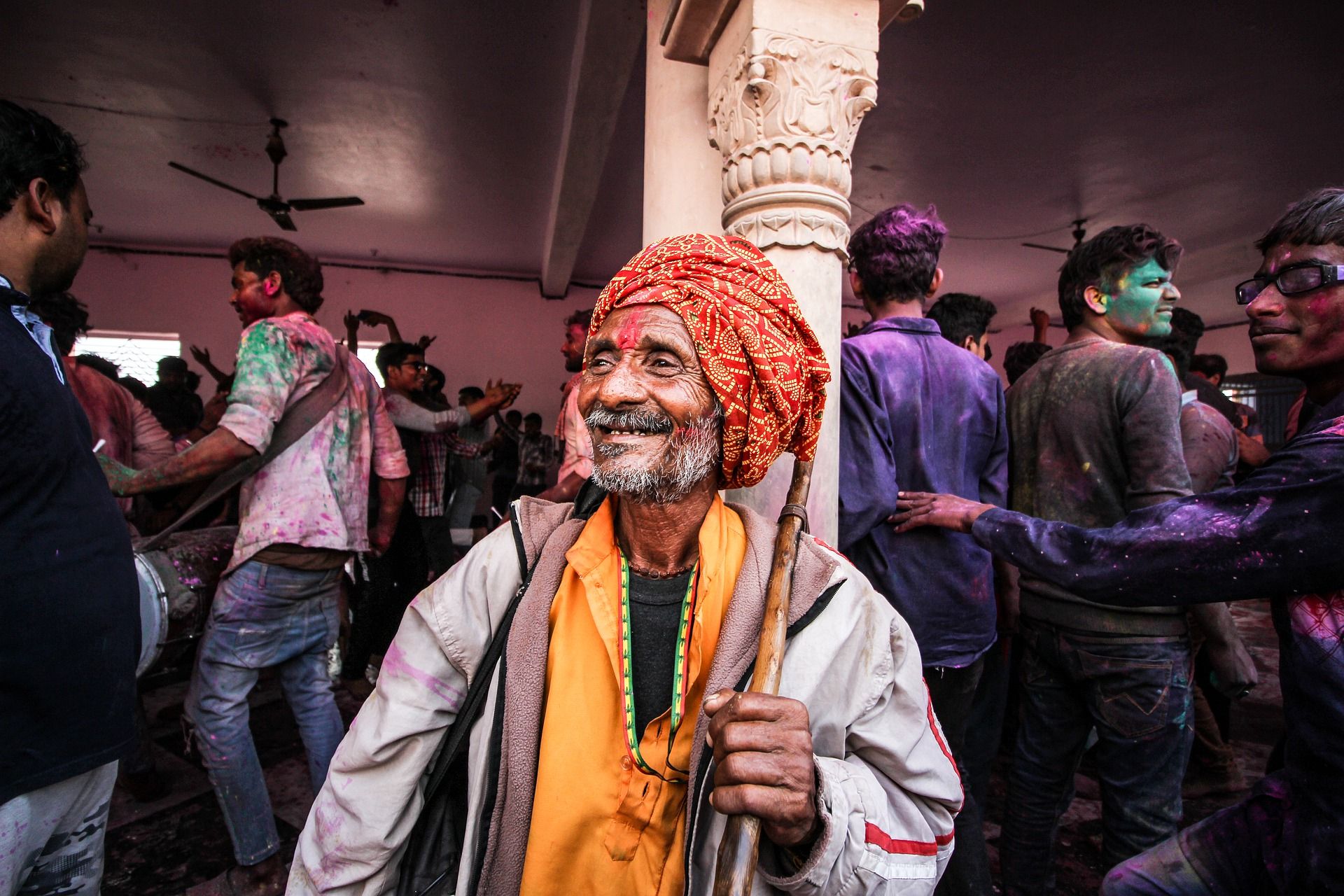
Book Notes:
“Life is like a play. A good actor knows when to leave the stage.”
“We truly can’t praise the love and pursuit of wisdom enough, since it allows a person to enjoy every stage of life free from worry.”
“Old age has no extravagant banquets, no tables piled high, no wine cups filled again and again, but it also has no drunkenness, no indigestion, and no sleepless nights!”
“How wonderful it is for the soul when – after so many struggles with lust, ambition, strife, quarreling, and other passions – these battles are at last ended and it can return, as they say, to live within itself. There is no greater satisfaction to be had in life than a leisurely old age devoted to knowledge and learning. I used to see, Scipio, your father’s friend Gaius Gallus measuring, you might say, the whole of the heavens and the earth.
How often the morning sun surprised him as he worked on some chart he had begun the previous night. And how often night overtook him at a task he had begun at dawn. How he delighted in telling us about eclipses of the sun and moon before they happened!”
“Wretched indeed is the man who in the course of a long life has not learned that death is nothing to be feared.”
“But I believe the immortal gods planted souls in human bodies to have beings who would care for the earth and who would contemplate the divine order and imitate it in the moderation and discipline of their own lives.”
“It’s not by strength or speed or swiftness of body that great deeds are done, but by wisdom, character, and sober judgment.”
“And - to say a few boastful words about myself, as old men often will – do you think that I would have labored so hard day and night, at home and in wars abroad, if I believed that the end of this earthly life would mark the limit of my fame?”
“This, my young friends, is what I believe about old age. May you both live long enough to see it and to prove by experience that the words I have spoken are true.”
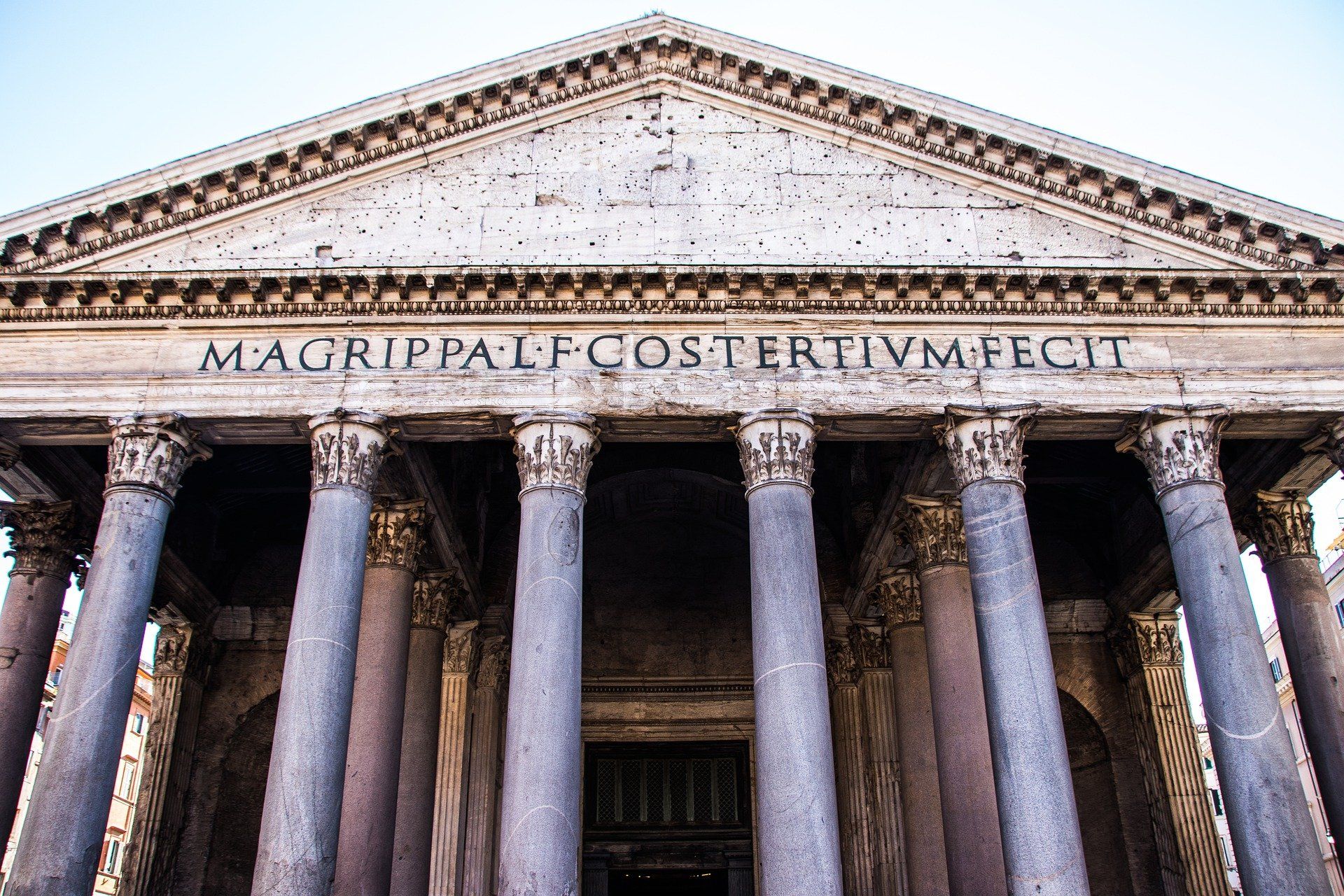
Important Insights from Related Books:
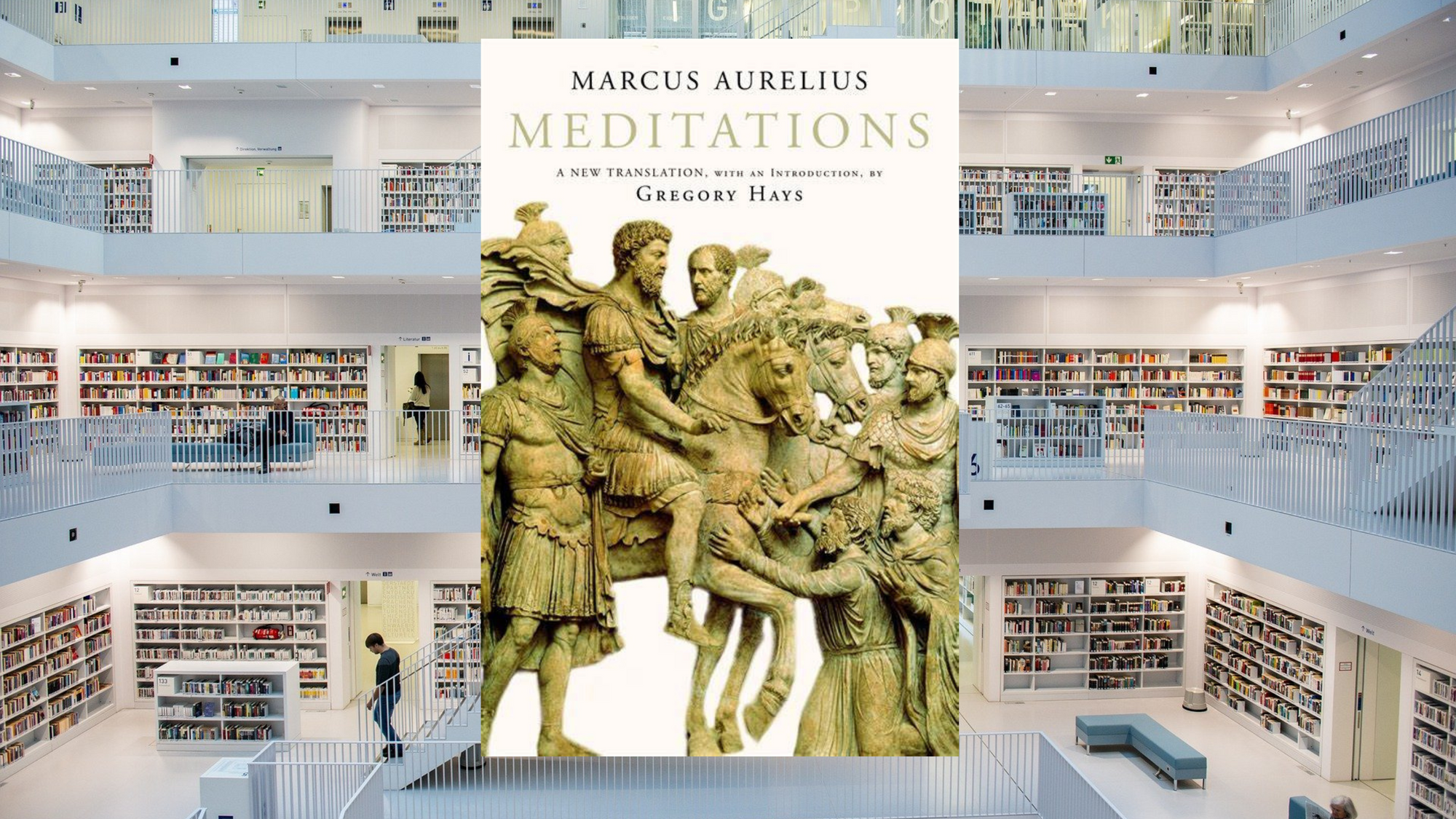
Meditations, by Marcus Aurelius:
“It is not death that a man should fear, but he should fear never beginning to live.”
“You have power over your mind - not outside events. Realize this, and you will find strength.”
“Dwell on the beauty of life. Watch the stars, and see yourself running with them.”
This Book on Amazon: Meditations, by Marcus Aurelius
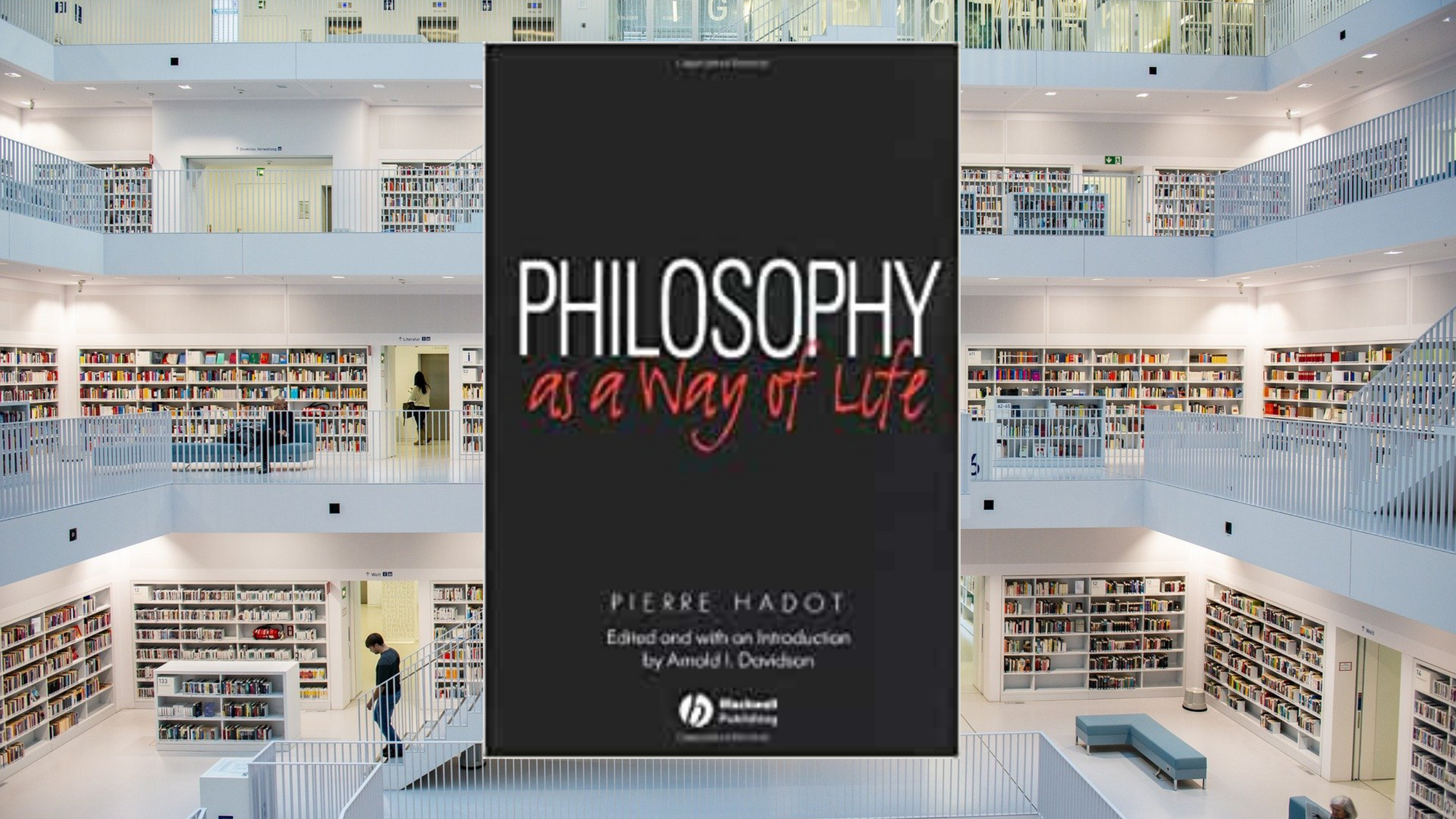
Philosophy as a Way of Life, by Pierre Hadot:
“Persuade yourself that every new day that dawns will be your last one. And then you will receive each unhoped-for hour with gratitude.”
“Become eternal by surpassing yourself.”
“Remember that, although born mortal with a limited life-span, you have risen in thought as far as the eternity and the infinity of things, and that you have seen everything that has been, and everything that shall be."
“Receive each additional moment of time in a manner appropriate to its value; as if one were having an incredible stroke of luck."
“If the whole world were to appear to mortals now, for the first time; if it was suddenly and unexpectedly exposed to their view; what could one think of more marvelous than these things, and which mankind would less have dared to believe?"
“From the point of view of death, the mere fact of existing - even if only for a moment - seems to be of infinite value, and gives us pleasure of infinite intensity."
This Book on Amazon: Philosophy as a Way of Life, by Pierre Hadot
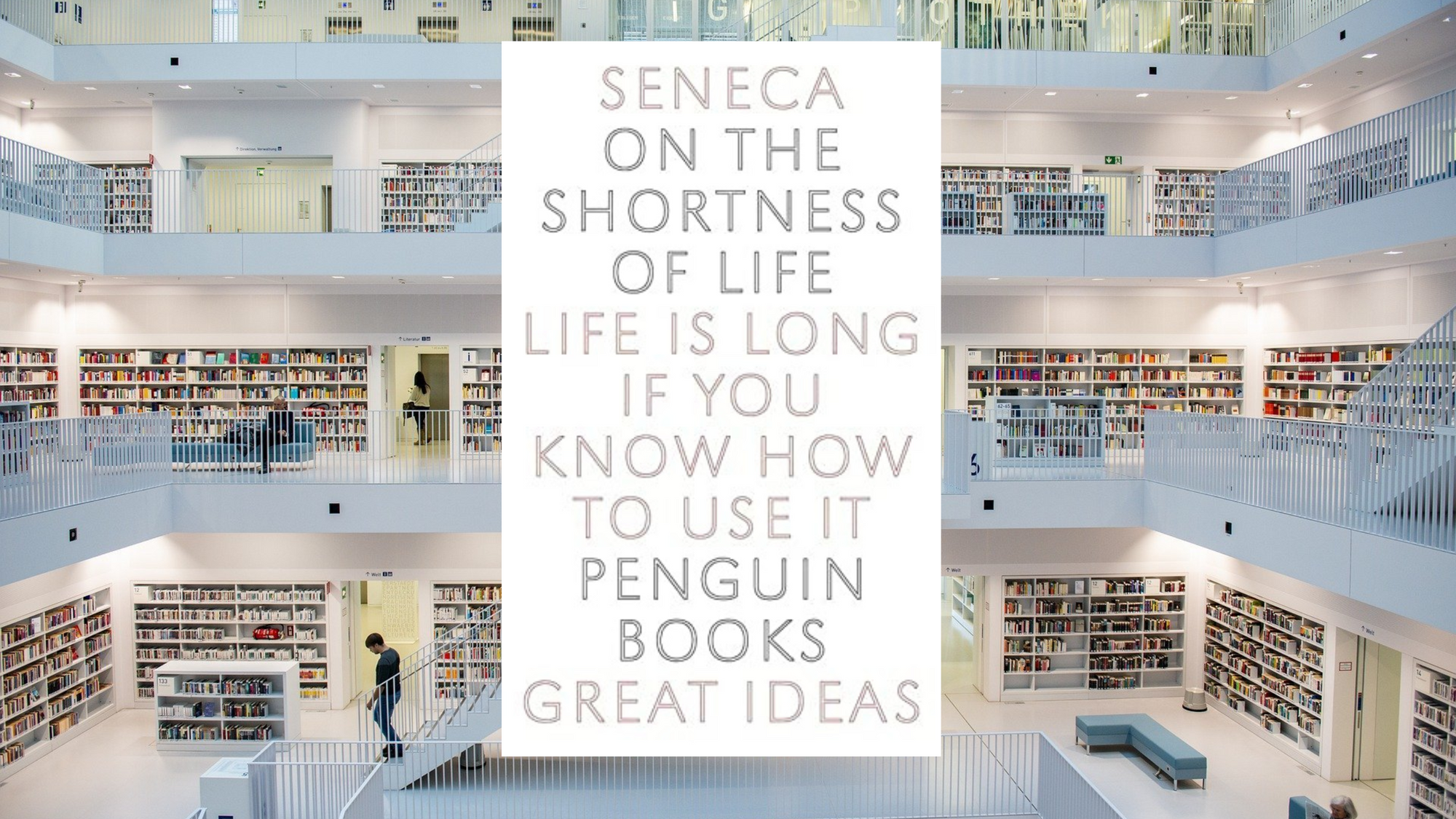
On the Shortness of Life, by Seneca:
“It is not that we have a short time to live, but that we waste a lot of it. Life is long enough, and a sufficiently generous amount has been given to us for the highest achievements if it were all well invested.
But when it is wasted in heedless luxury and spent on no good activity, we are forced at last by death’s final constraint to realize that it has passed away before we knew it was passing. So it is: we are not given a short life but we make it short, and we are not ill-supplied but wasteful of it…Life is long if you know how to use it.”
“The greatest obstacle to living is expectancy, which hangs upon tomorrow and loses today. You are arranging what lies in Fortune’s control, and abandoning what lies in yours. What are you looking at? To what goal are you straining? The whole future lies in uncertainty: live immediately.”
“It takes the whole of life to learn how to live, and - what will perhaps make you wonder more - it takes the whole of life to learn how to die.”
This Book on Amazon: On the Shortness of Life, by Seneca
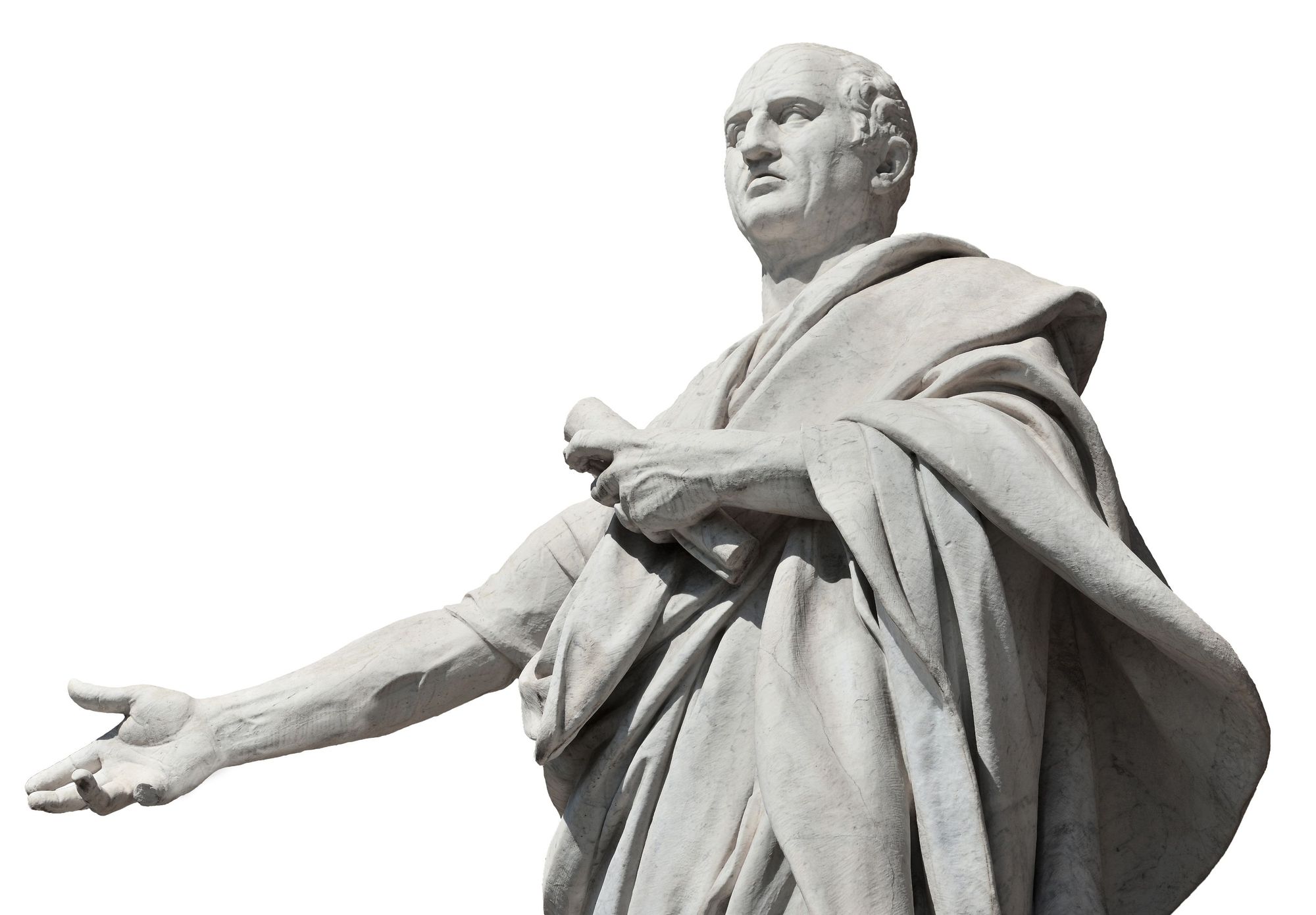
More Great Quotes from Cicero:
“A room without books is like a body without a soul.”
“If you have a garden and a library, you have everything you need.”
“Six mistakes mankind keeps making century after century:
Believing that personal gain is made by crushing others;
Worrying about things that cannot be changed or corrected;
Insisting that a thing is impossible because we cannot accomplish it;
Refusing to set aside trivial preferences;
Neglecting development and refinement of the mind;
Attempting to compel others to believe and live as we do.”
“Times are bad. Children no longer obey their parents, and everyone is writing a book.”
“Read at every wait; read at all hours; read within leisure; read in times of labor; read as one goes in; read as one goest out. The task of the educated mind is simply put: read to lead.”
“If we are not ashamed to think it, we should not be ashamed to say it.”
“Friendship improves happiness, and abates misery, by doubling our joys, and dividing our grief”
“Gratitude is not only the greatest of virtues, but the parent of all others.”
“The authority of those who teach is often an obstacle to those who want to learn.”
“While there's life, there's hope.”
“For books are more than books, they are the life, the very heart and core of ages past, the reason why men worked and died, the essence and quintessence of their lives.”
“Our span of life is brief, but is long enough for us to live well and honestly.”

The View from the Opposition:
No one's ideas are beyond questioning. In this section, I argue the case for the opposition and raise some points that you might wish to evaluate for yourself while reading this book.
#1: Rage against the dying of the light.
Passively accept nothing in life, especially not death. Do you not love Life? Are you just going to lay down and die? Or are you going to fight back, to "rage against the dying of the light," in the words of Dylan Thomas's famous poem?
I've reproduced it here for your consideration:
Do not go gentle into that good night,
Old age should burn and rave at close of day;
Rage, rage against the dying of the light.
Though wise men at their end know dark is right,
Because their words had forked no lightning they
Do not go gentle into that good night.
Good men, the last wave by, crying how bright
Their frail deeds might have danced in a green bay,
Rage, rage against the dying of the light.
Wild men who caught and sang the sun in flight,
And learn, too late, they grieved it on its way,
Do not go gentle into that good night.
Grave men, near death, who see with blinding sight
Blind eyes could blaze like meteors and be gay,
Rage, rage against the dying of the light.
And you, my father, there on the sad height,
Curse, bless, me now with your fierce tears, I pray.
Do not go gentle into that good night.
Rage, rage against the dying of the light.
#2: The lively case of Zorba the Greek.
It seems impossible that someone like Zorba the Greek could ever die. Nikos Kazantzakis's incredible novel about the wild, ecstatic Zorba and the "pen-pushing" narrator is Exhibit B in the case against the Roman lawman Cicero.
Here' what Zorba has to say about getting older:
“As I get older I become wilder, by God. Why do people sit there and keep telling me that old ages tames a person, makes him lose his zest, stretch out his neck when he sees death and say, ‘Slaughter me, please, dear agha, so that I may become a saint’? As for me, as I get older I become wilder. I don’t quit. I want to eat up the whole wide world.”
Zorba teaches the narrator - and all of us readers - to love life and not to fear death. He would be appalled at the advice given by the Stoics to just "lie down and take it" when it comes to death and dying and easing into a quieter life as you advance into old age. No! he would storm and yell. Never give up what you loved in youth; refuse to act your age; never let a calendar dictate what you do and how you live and feel. Always feel, no matter what. Live all you can; it's a mistake not to.
#3: Why you should be afraid to die.
The fact of death confers meaning on life. Nothing we do or strive for or create could ever mean anything if we just lived forever and had no danger of dying. We would have an eternity to do everything, so we would never do anything at all.
Death has to be terrifying for life to be experienced as valuable. Death has to be infinitely terrible for life to possess infinite worth.
You wouldn't watch a superhero movie if there were no villain - it just wouldn't be captivating. So when it comes to life and death, death has to be set up as the all-terrible, infinitely-evil menace that the hero sets themselves up against.
In a very real sense, removing your fear of death is like taking a Batman movie and removing the Joker. So...what, he just drives around and ensures that everything is, relatively, basically fine?
"The test of a first-rate intelligence is the ability to hold two opposed ideas in the mind at the same time and still retain the ability to function.”
-F. Scott Fitzgerald

Action Steps:
So you've finished reading the book. What do you do now?
#1: Live all you can.
This line, "Live all you can; it's a mistake not to," comes from Henry James's novel, The Ambassadors. It has perfect relevance here because one of the worst things one could ever experience in old age is regret for a life unlived.
Regret is so painful because there's nothing we can possibly do about it now - what we once hoped for, could have had, has escaped us, and is now gone forever and ever. That, as Cicero might have said but didn't, sucks.
So work backward from regret, and do everything you possibly can to reduce the number of regrets you'll have when you're older. Most of the time, people regret things they didn't do more than anything they actually did, so it makes sense to ensure that you're making the most out of the infinite opportunity that you're presented with each day. That way, you'll arrive at old age with fewer stinging regrets, which will make the promised peace and tranquillity much more likely.
#2: Prepare for your old age while you're still young.
There are plenty of things you can do today that your older self will thank you for. This absolutely has to do with minimizing regrets, of course, but I'm thinking here about taking care of your health, putting money away that you'll have access to later, and maintaining quality friendships and relationships with people you love so that you'll set yourself up for the best possible old age.
It goes beyond the scope of this breakdown to describe all the different ways you can do this, but again, just look ahead to some of the regrets people have when they're older and see what you can do to forestall them. People hate the idea of losing their physical abilities as they age, so make sure you move now so that you can retain your health for longer.
This extends into the mental sphere as well. Come to terms with your fears now so they don't continue to torment you when you're older. With luck, you'll make it to old age, so it makes sense to do everything you can right now to prepare. The idea is to look ahead to what you might need to have in place in order to enjoy your old age as much as possible.
#3: Make sure your chair has more than one leg.
You wouldn't sit in a chair that only had one leg, so you shouldn't rely on just one endeavor or capability for your entire fulfillment in life. Smart investors are diversified across several asset classes, and that's because if one part of their portfolio starts to tank, they still have additional investments that can continue to increase in value.
So if being able to run 5 miles a day is where you derive 100% of your meaning in life, what happens when you can't do that anymore? Hopefully, you love your friends, but if you have just one really close friend and they move away or something, what then? There would be a gaping hole in your life that you would suddenly struggle to fill.
The solution is to diversify. And I don't mean sustaining 500 superficial friendships "just in case," but making and keeping lots of friends over the course of your life will be a fantastic source of fulfillment for you. If, tragically, you should lose a friend somewhere along the way - for whatever reason - you still have a lively friend group to support you, sustain you, and help you get over the loss.
#4: Face your fear of death.
Face your fear of death now, and every subsequent year of your life will be more peaceful and tranquil. If you carry your fear of death with you, it'll plague your youth and your old age.
This is more easily said than done, of course, and when all is said and done, more is usually said than done. So many people carry around this nagging fear of their own eventual annihilation, and it ruins experiences that could otherwise be so much more fully enjoyed.
So if you recognize this fear in yourself, turn and face it. Fears thrive in darkness and shadow, and when they're exposed to the light they naturally dissipate. There are plenty of things you can do here, such as visit an existential therapist. You could even do something along the lines of "exposure therapy," which could take the form of seeking out reminders of your own mortality instead of always trying to run from it.
There are plenty of good reasons to fear death, and plenty of reasons why you shouldn't. No one can tell you how to feel about this; this is something that you have to come to terms with yourself. However, you don't have to approach the entire process alone, and though getting old and dying is inevitable, the fear of death is not.
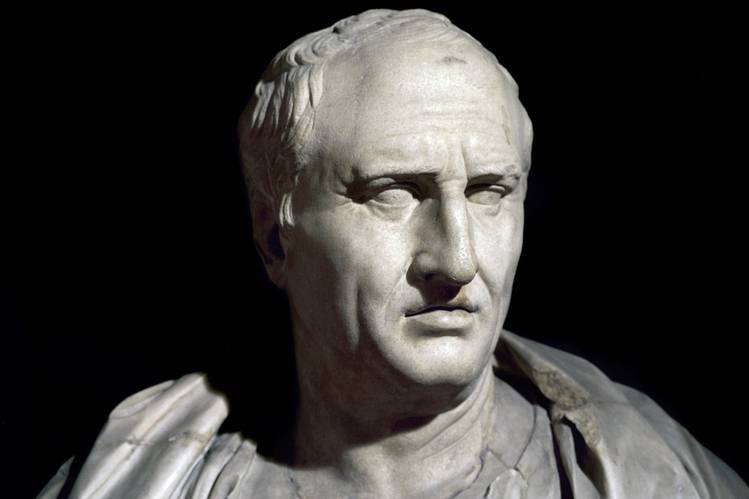
About the Author:
Marcus Tullius Cicero was a Roman statesman, lawyer, scholar, and philosopher who tried to uphold optimate principles during the political crises that led to the establishment of the Roman Empire. His extensive writings include treatises on rhetoric, philosophy, and politics, and he is considered one of Rome's greatest orators and prose writers.
His influence on the Latin language was immense. He wrote more than three-quarters of extant Latin literature that is known to have existed in his lifetime, and it has been said that subsequent prose was either a reaction against or a return to his style, not only in Latin but in European languages up to the 19th century.
During the chaotic middle period of the 1st century BC, marked by civil wars and the dictatorship of Julius Caesar, Cicero championed a return to the traditional republican government. Following Caesar's death, Cicero became an enemy of Mark Antony in the ensuing power struggle, attacking him in a series of speeches. He was proscribed as an enemy of the state by the Second Triumvirate and consequently executed by soldiers operating on their behalf in 43 BC, having been intercepted during an attempted flight from the Italian peninsula. His severed hands and head were then, as a final revenge of Mark Antony, displayed on the Rostra.
Petrarch's rediscovery of Cicero's letters is often credited for initiating the 14th-century Renaissance in humanism and classical Roman culture. His works rank among the most influential in European culture, and today still constitute one of the most important bodies of primary material for the writing and revision of Roman history, especially the last days of the Roman Republic.
Additional Resources:
Cicero - Biography on Wikipedia
Who is Cicero? Getting to Know Rome's Greatest Politician
Cicero - Internet Encyclopedia of Philosophy
This Book on Amazon:
How to Grow Old, by Marcus Tullius Cicero
If You Liked This Book:
Meditations, by Marcus Aurelius
Philosophy as a Way of Life, by Pierre Hadot
On the Shortness of Life, by Seneca
The Daily Stoic, by Ryan Holiday
